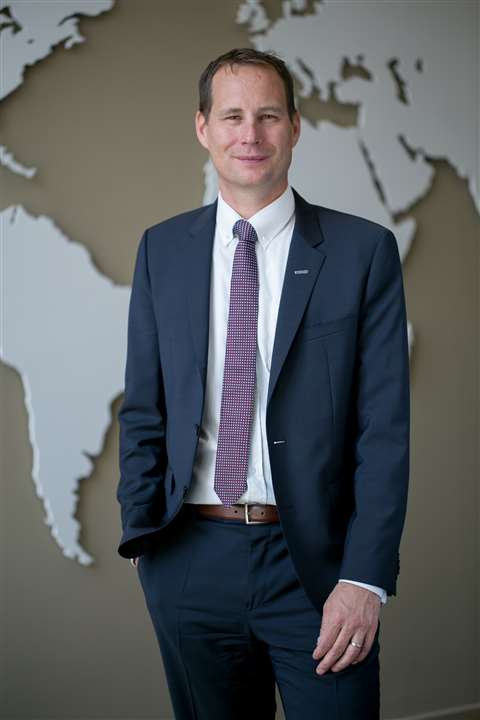WinGD sets timeframe for methanol, ammonia engines
23 November 2021
Solution based on existing engines
Swiss engine designer WinGD said its engines will be able to run on methanol starting in 2024 and ammonia in 2025.
WinGD said its multi-fuel solutions will be based on its diesel-fueled X engines and dual-fuel X-DF engines. The ability to use zero-carbon or carbon-neutral fuels such as ammonia and methanol in both of its core engine types will give ship operators unprecedented flexibility in how they reduce emissions, the company said.
“Our commitment to deliver engine technologies to enable the use of clean fuels by 2025 means that ship owners and operators can already invest in ships that are ready to use ammonia and methanol today, safe in the knowledge that WinGD will have the technologies available to power their vessels reliably, efficiently and cleanly,” said Dominik Schneiter, vice president Research & Development at WinGD.
 Dominik Schneiter
Dominik Schneiter
Both X and X-DF engine series are already compatible with low-carbon fuels - liquid biofuel or biogas respectively - which can provide significant reductions in greenhouse gas emissions. As one example, the tanker operator Terntank bunkered and operated its X-DF engines on liquefied biogas as long ago as 2018. The full, long-term use of carbon-neutral or zero-carbon fuels is the next step on this pathway, the company said.
Emissions from WinGD engines can already be optimized in line with IMO’s incoming Carbon Intensity Index (CII) and Energy Efficient Design Index for Existing Ships (EEXI). Hybridization of the power arrangement is one option. WinGD offers system integration services that maximize fuel efficiency by selecting and sizing hybrid components and the electrical system in parallel with the main engine.
The timeframe for ammonia and methanol capability is part of a wider ambition to grow sales of multi-fueled engines capable of operating on carbon-neutral fuels to 50% of the company’s orderbook by 2030. This is in line with the industry predictions of when these fuels will be available at scale and a viable fuel choice for deep-sea vessels.
“By 2030, many of the ships that will be sailing in 2050 – the date of IMO’s greenhouse gas emission reduction target - will already have been ordered,” said Volkmar Galke, director of Global Sales, WinGD “Our clean fuel engine technologies will be available well before then and will be based largely on our current technologies, allowing us to support ship owners and operators in their decarbonization choices whenever they make them.”
STAY CONNECTED




Receive the information you need when you need it through our world-leading magazines, newsletters and daily briefings.
POWER SOURCING GUIDE
The trusted reference and buyer’s guide for 83 years
The original “desktop search engine,” guiding nearly 10,000 users in more than 90 countries it is the primary reference for specifications and details on all the components that go into engine systems.
Visit Now
CONNECT WITH THE TEAM










